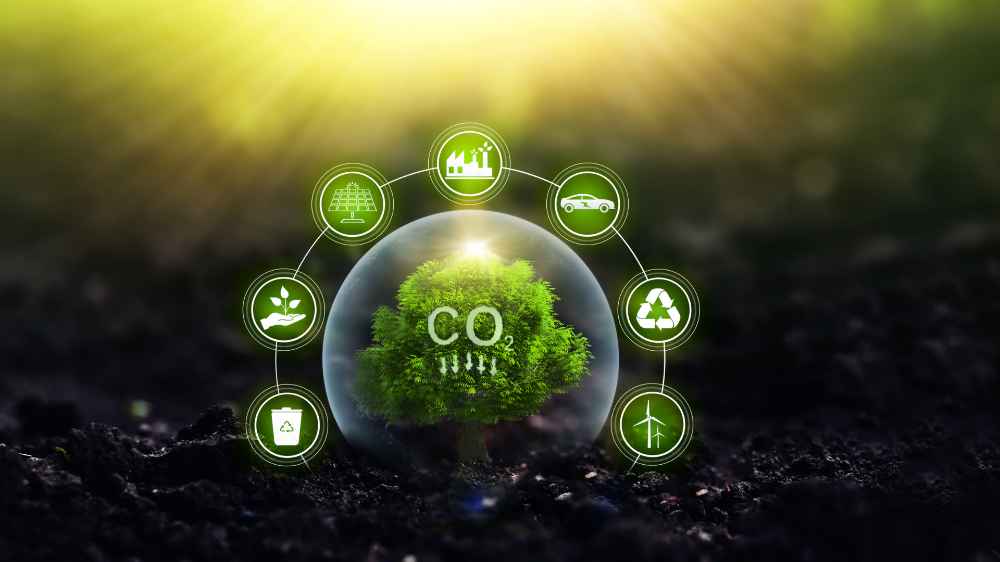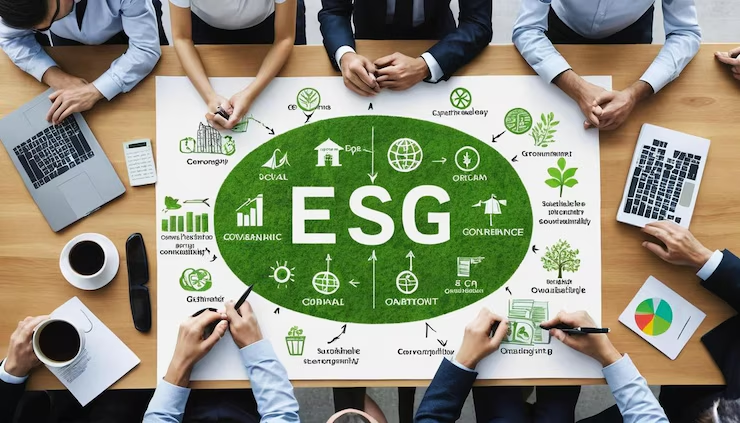The ROI of Sustainability
How ESG Boosts Business Value

In 2025, Indian companies face a clear choice: embrace ESG (Environmental, Social, Governance) or risk falling behind. With SEBI’s BRSR mandating ESG disclosures for the top 1,000 listed firms, the EU’s CBAM slapping carbon tariffs from 2026, and $50 billion in ESG funds eyeing India, the stakes are high. ESG-focused strategies are proving to deliver tangible returns on investment (ROI), from increased profitability and investor interest to enhanced brand loyalty and risk resilience.
Investor Confidence: The ESG Money Magnet
Investors can’t get enough of sustainability. India’s ESG assets skyrocketed 4.7x in two years, reaching $10 billion by May 2025, per industry reports. Globally, $130 trillion in capital is tied to net-zero goals, per the Glasgow Financial Alliance. Why? ESG-compliant firms scream low risk and high reward. In FY 2023, 94% of India’s top 300 BRSR filers reported Scope 1 & 2 emissions, slashing intensity by 14% per revenue unit—numbers that make fund managers swoon. Companies like Infosys, part of the Dow Jones Sustainability Index, command premium valuations thanks to rock-solid ESG data.
To cash in, businesses need airtight metrics. A steel firm tracking emissions and buying verified offsets can pitch to ESG funds with swagger. Despite global ESG fund outflows ($6.1 billion in Q1 2025, per Morningstar), India’s Climate Finance Taxonomy draft (May 7, 2025, Business Standard) is funneling billions to green projects, making ESG a magnet for capital. The ROI? Cheaper loans, bigger investments, and a seat at the $50 billion ESG fund table.
Customer Loyalty: Winning Hearts and Wallets
India’s consumers are turning green—and they’re not quiet about it. A 2025 survey shows 80% of Gen Z prefer sustainable brands, happy to pay extra for eco-friendly goods. ESG builds loyalty by showing you mean business about the planet. A retailer with a low-carbon supply chain, verified through offsets, can market sustainable products that fly off shelves. Tata Consumer Products saw a 12% revenue spike in 2024 after rolling out eco-friendly packaging, per company reports.
Brand trust is the secret sauce. Transparent governance (e.g., anti-corruption policies) and social metrics (e.g., fair labor) hit home with customers. A Mumbai apparel brand highlighting diversity in its BRSR report can win over shoppers. The EU’s anti-greenwashing rules (effective May 21, 2025, Lexology) mean fake claims are a death sentence—335 funds rebranded to dodge scrutiny. Authentic ESG data keeps customers coming back. The ROI? Loyal buyers, juicier margins, and a brand Gen Z brags about online.
Risk Reduction: Shielding Your Bottom Line

ESG is your business’s shield against chaos. Regulatory risks are no joke—SEBI’s BRSR Core, launching in 2027, demands third-party assurance for nine KPIs, including value chain emissions. Miss it, and you’re facing fines or investor walkouts. The EU’s CBAM, hitting in 2026, could slap $8 billion in tariffs on Indian exporters, per trade estimates. A cement firm investing in low-carbon tech can sidestep those costs, staying competitive.
Then there’s operational and reputational risk. Climate events—like 2024’s Gujarat floods—wreck supply chains, but ESG-ready firms bounce back faster by mapping vulnerabilities, like a supplier’s high emissions. Greenwashing is another trap—fake sustainability claims can torch your reputation. Robust ESG reporting, like Scope 1-3 emissions tracking, keeps you legit. The ROI? Fewer fines, smoother operations, and a rep that holds up under scrutiny.
Innovation and Market Expansion
ESG drives innovation by encouraging businesses to rethink traditional models. For instance:
1. Renewable energy startups are transforming the energy sector.
2. Fashion brands are embracing circular design.
3. Food companies are turning to plant-based alternatives.
Innovation born from sustainability opens new revenue streams and expands customer base. It also fosters resilience, allowing businesses to adapt quickly to changing regulatory or consumer landscapes.
The Numbers Behind ESG ROI
1. A 2020 Harvard Business School study showed that companies scoring high on sustainability metrics significantly outperformed their counterparts in stock performance and profitability.
2. McKinsey reports that strong ESG propositions correlate with up to 10% lower cost of capital.
3. Nielsen found that 73% of global consumers would definitely or probably change their consumption habits to reduce their environmental impact.
These numbers underscore the direct link between sustainability and financial performance.
Getting Started: Your ESG Playbook

Want to bank on ESG? Start with data—accurate emissions and social metrics are your foundation. Tools like WOCE’s esgpro.ai automate BRSR and CBAM reporting, cutting costs and time. Set bold goals, like 20% emission cuts by 2030, and shout them out in annual reports to lure investors. Win customers with real stories—a low-carbon product backed by verified offsets grabs attention. Train your team on ESG rules to stay sharp—dashboards can simplify complex data.
The payoff is huge: investors throw billions your way, customers stick around, and risks shrink. In India’s $5 trillion economy by 2030, ESG is your ticket to the top. Don’t sleep on it—SEBI’s deadlines and CBAM’s tariffs are coming fast, and the world’s watching.
Conclusion: Invest in ESG, Win Big
In 2025, ESG isn’t a cost—it’s a catalyst. Investor confidence brings capital, customer loyalty fuels growth, and risk reduction protects your future. With India’s Climate Finance Taxonomy and global ESG funds reshaping markets, now’s the time to act. The return on sustainability is no longer hypothetical. ESG delivers real, measurable value to companies ready to embrace it. From cost savings and compliance to capital access and consumer trust, ESG is not a burden—it's a pathway to profitability and long-term success.
As we move toward a net-zero economy, businesses that lead on ESG will lead the market. And with tools like esgpro.ai by WOCE, the journey becomes not only manageable but also rewarding.




